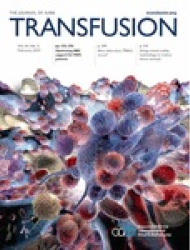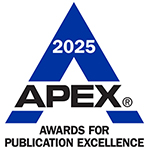
Nabiha Huq Saifee, MD, PhD, is transfusion service medical director at Seattle Children’s Hospital and an associate professor in the department of laboratory medicine and pathology at the University of Washington. Saifee completed her bachelor of science degree in chemistry at Vanderbilt University; her MD, PhD and clinical pathology residency at the University of Washington School of Medicine; and her fellowship in transfusion medicine/blood banking at Bloodworks Northwest. She has served as transfusion service medical director at Seattle Children’s hospital since 2017.
Saifee’s scholarly work comprises more than 40 papers published in peer-reviewed scientific journals and five book chapters. She has been invited to give talks on pediatric transfusion medicine, anticoagulation management and extracorporeal membrane oxygenation (ECMO) in the United States and throughout the world. Committed to continuous quality improvement and medical education, Saifee actively participates in multiple hospital committees including those for transfusion practice, apheresis quality, ECMO, clinical pathology and transfusion medicine education, and anticoagulation safety. She also participates in multiple committees in the AABB professional organization and regularly attends and presents at the Annual Meeting. Saifee excels in combining her expertise in pediatric transfusion medicine and coagulation with real-world experience to drive quality improvement projects at the institutional level.
AABB NEWS: What or who inspired you to specialize in pediatric transfusion care?
Saifee: During my training at the University of Washington and Bloodworks Northwest, I was fortunate to spend considerable time at Seattle Children’s with Dr. Meghan Delaney in pediatric transfusion medicine and Dr. Wayne Chandler in coagulation, while also learning from other incredible mentors including Drs. Theresa Nester, Monica Pagano, John Hess, Kirsten Alcorn and Yanyun Wu. Working closely with these mentors showed me how research and quality improvement efforts could directly improve patient care. I was drawn to pediatrics because of the complexity of the cases and the opportunity to delve into each patient's story. Because most research focuses on adults, contributing to research in pediatric patients feels especially meaningful.
AABB News: What is the most important research impacting your work today?
Saifee: Advances in blood storage and the potential to manufacture rare blood types could strengthen the blood supply and improve access for patients with unique needs. At the same time, new anticoagulants — particularly those targeting factors XI and XII — may make anticoagulation safer and more effective, especially in settings like ECMO, by reducing the risks of both bleeding and clotting.
AABB News: You’ve worked extensively in neonatal and pediatric intensive care settings. What are the biggest challenges facing clinicians when managing transfusions in critically ill children?
Saifee: One major challenge is dosing across a wide range of patient sizes — from tiny preterm infants to young adults. Clinicians also need to account for special safeguards such as irradiation for patients with undiagnosed congenital immunodeficiencies and balancing immediate survival with long-term consequences. Children may live decades after their transfusions, so consideration of long-term risk of different exposures matters more.
AABB News: What is the most rewarding aspect of your career in pediatric transfusion medicine? What energizes you?
Saifee: The people I work with are truly dedicated to caring for children, and that inspires me every day. As patient care grows more complex, I find it deeply rewarding to be part of a team and contribute transfusion and coagulation expertise to help children get better.
AABB News:Your upcoming session at the 2025 AABB Annual Meeting will focus on comprehensive pediatric patient blood management programs. What excites you most about helping to shape the future of PBM in pediatric care?
Saifee: At Seattle Children’s, our cardiac surgeons have embraced blood conservation with remarkable results — 73% of cardiac surgeries at our hospital use no blood products at all, even in neonates. This reflects a growing body of evidence that restrictive transfusion thresholds are not only safe but sometimes protective. I’m excited to share these successes and to explore how we can expand patient blood management to other areas of pediatric care, using evidence to ensure we conserve scarce resources for patients with the most urgent needs.
New antibody-depleting drugs hold great promise to expand eligibility and ensure more patients have access to life-changing cures.
AABB News: What are the key challenges when managing anticoagulation and transfusion support for pediatric patients on ECMO?
Saifee: The central challenge is balance: preventing clotting in the ECMO circuit while preserving enough coagulation factors so patients don’t bleed. No single lab test provides the full picture, so we must integrate clinical observations with lab values. Pediatric ECMO adds another layer of complexity: in infants, the circuit may contain twice their blood volume. We also know neonatal hemostasis is unique, and when we transfuse infants, we are effectively replacing their system with adult platelets and plasma. There’s still much to learn in this space.
AABB News: Looking ahead, what innovations or emerging practices do you believe will have the greatest impact on pediatric transfusion medicine?
Saifee: Curative therapies such as gene therapy and stem cell transplant are transforming the field, but they depend on safe transfusion support. Some patients develop antibodies that limit transfusion options, making these therapies inaccessible. New antibody-depleting drugs hold great promise to expand eligibility and ensure more patients have access to life-changing cures.
AABB News: What is your proudest accomplishment to date?
Saifee: Leading our transfusion service through major transitions such as new computer systems and new lab space while developing transfusion plans for complex patients with rare blood needs has been incredibly rewarding. I’m especially proud of a platelet utilization project that, through education and simple order changes, reduced unnecessary transfusions and saved more than $1 million in direct annual costs.
AABB News: What are your favorite leisure activities outside of work?
Saifee: In recent years, I’ve become an avid audiobook listener across a variety of genres — from nonfiction on leadership and productivity to fantasy and romance. I’m currently revisiting the Harry Potter series with my 11-year-old son and listening to The Summer I Turned Pretty series alongside my teenage daughter. I also started running outdoors, which surprised my family since I dreaded PE runs as a child! Now I’m training for 10k and half-marathon races, and I’ve come to enjoy chasing that runner’s high.
AABB News: What are you most looking forward to at the 2025 AABB Annual Meeting?
Saifee: The AABB Annual Meeting is always energizing. I look forward to reconnecting with colleagues, making new connections from around the world, and bringing back fresh ideas to apply in patient care and research.
PREVIOUS STORY
Advancing Apheresis: Inside the Fourth Edition with Editor-in-Chief Jeffrey Winters, MDBACK TO ISSUE
September 2025
Transfusion is AABB’s scholarly, peer-reviewed monthly journal, publishing the latest on technological advances, clinical research and controversial issues related to transfusion medicine, blood banking, biotherapies and tissue transplantation. Access of Transfusion is free to all AABB members.
Learn More About Transfusion Journal
Keep abreast of what's happening in the field of biotherapies with CellSource - AABB's monthly update on the latest biotherapies news.
To submit news about the blood and biotherapies field to AABB, please email news@aabb.org.
President
Meghan Delaney, DO, MPH
Chief Executive Officer
Debra Ben Avram, FASAE, CAE
Chief Communications and Engagement Officer
Julia Zimmerman
Director of Marketing and Communications
Jay Lewis, MPH
Managing Editor
Kendra Y. Mims, MFA
Senior Communications Manager
Drew Case
AABB News
(ISSN 1523939X) is published monthly, except for the combined November/December issue for the members of AABB; 4550 Montgomery Avenue; Suite 700 North Tower; Bethesda, MD 20814.
AABB is an international, not-for-profit association representing individuals and institutions involved in transfusion medicine, cellular therapies and patient blood management. The association is committed to improving health by developing and delivering standards, accreditation and educational programs that focus on optimizing patient and donor care and safety.
+1.301.907.6977
Email: news@aabb.org
Website: www.aabb.org
Copyright 2025 by AABB.
Views and opinions expressed in AABB News are not necessarily endorsed by AABB unless expressly stated.
Notice to Copiers: Reproduction in whole or part is strictly prohibited unless written permission has been granted by the publisher. AABB members need not obtain prior permission if proper credit is given.
